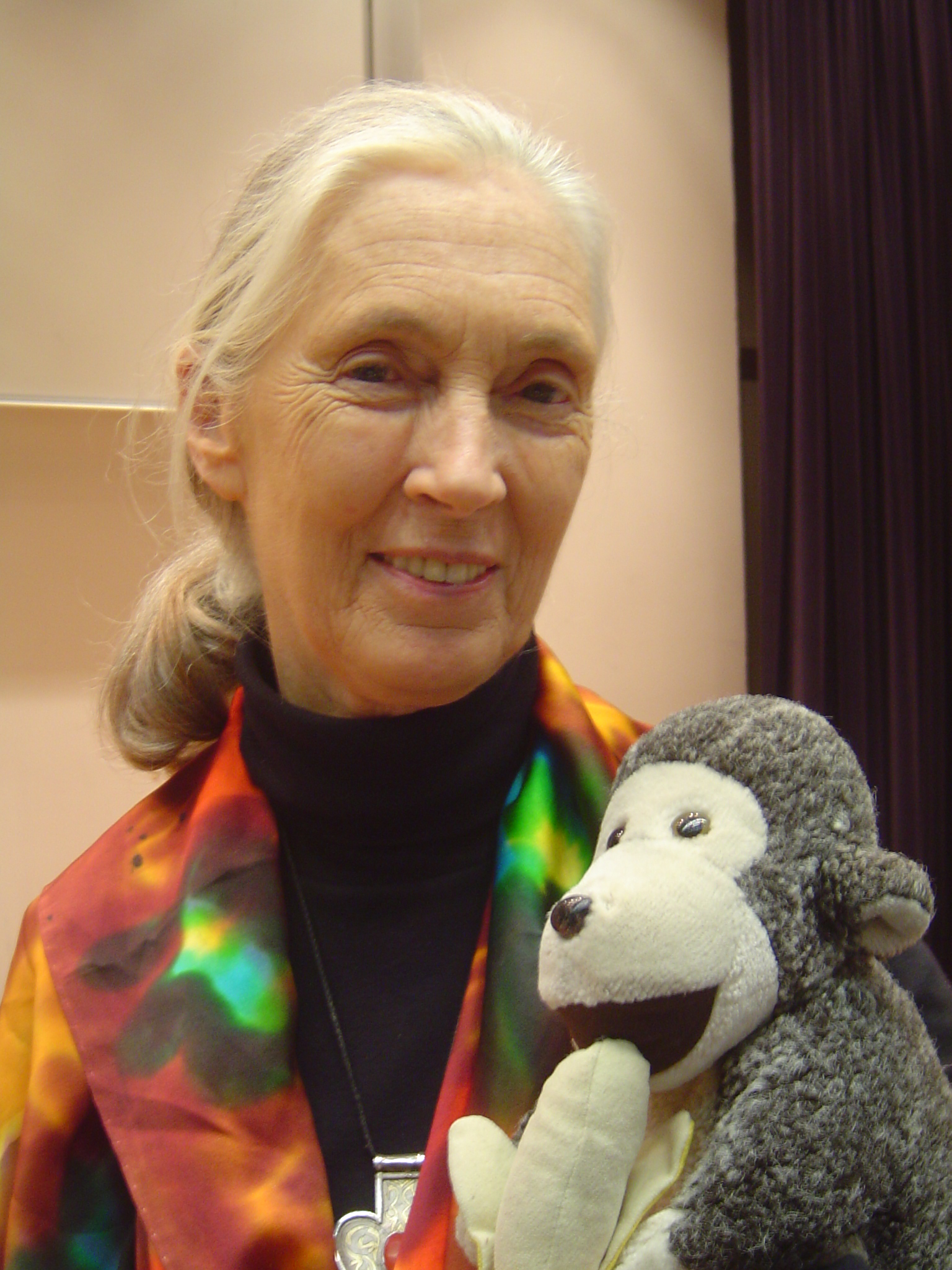Jane Goodall Berühmte Zitate
in Der Spiegel 34/2006 http://www.spiegel.de/spiegel/print/d-48495971.html
Jane Goodall: Zitate auf Englisch

Reported in Janelle Rohr, Animal rights: opposing viewpoints (1989), p. 100; Jane Goodall and Jennifer Lindsey, Jane Goodall: 40 Years at Gombe (1999), p. 6. Occasionally misreported in truncated form, as "The least I can do is speak out for those who cannot speak for themselves", in, e.g., quote honored on XOEarth eco money http://xoearth.org/jane-goodall/
Quelle: Harvest for Hope: A Guide to Mindful Eating
The Ten Trusts (2003), p. xv
Reported in Yolanda Brooks, Do Animals Have Rights? (2008), p. 23
" An Interview with Jane Goodall https://web.archive.org/web/20100920074838/http://www.idausa.org:80/essays/goodallinterview.html", In Defense of Animals (date unknown)
Kontext: Researchers find it very necessary to keep blinkers on. They don't want to admit that the animals they are working with have feelings. They don't want to admit that they might have minds and personalities because that would make it quite difficult for them to do what they do; so we find that within the lab communities there is a very strong resistance among the researchers to admitting that animals have minds, personalities and feelings.
Reported in Patti Denys, Mary Holmes, Animal Magnetism: At Home With Celebrities & Their Animal Companions (1998), p. 106
Quelle: Jane Goodall: 40 Years at Gombe
Quelle: Reason for Hope: A Spiritual Journey
"Chimpanzees - Bridging the Gap", in Paola Cavalieri, Peter Singer, The Great Ape Project: Equality Beyond Humanity (1996), p. 14

“We have so far to go to realize our human potential for compassion, altruism, and love.”
Quelle: Harvest for Hope: A Guide to Mindful Eating
As quoted in Going Blue: A Teen Guide to Saving Our Oceans, Lakes, Rivers, & Wetlands (2010) by Cathryn Berger Kaye and Philippe Cousteau, p. 14
Subject: Jane Goodall, primatologist and conservationist http://www.dailysummit.net/says/interview260802.htm, interviewed at the World Summit on Sustainable Development (2002)
In response to: "If chimps are so much like us, why are they endangered while humans dominate the globe?" Discover Magazine interview with Virginia Morell (28 March 2007)
"The Power of One", TIME Magazine (26 August 2002) http://content.time.com/time/magazine/article/0,9171,1003125,00.html
Frans de Waal, in a NOVA interview, " The Bonobo in All of Us" PBS (1 January 2007) http://www.pbs.org/wgbh/nova/nature/bonobo-all-us.html; quotes from this interview were for some time misplaced on this page, which probably generated similar misattributions elsewhere, and the misplacement was not discovered until after this quotation had been selected for Quote of the Day, as a quote of Goodall. Corrections were subsequently made here, during the day the quote was posted as QOTD.
Misattributed
Kontext: I think if we study the primates, we notice that a lot of these things that we value in ourselves, such as human morality, have a connection with primate behavior. This completely changes the perspective, if you start thinking that actually we tap into our biological resources to become moral beings. That gives a completely different view of ourselves than this nasty selfish-gene type view that has been promoted for the last 25 years.
Subject: Jane Goodall, primatologist and conservationist http://www.dailysummit.net/says/interview260802.htm, interviewed at the World Summit on Sustainable Development (2002)
“And always I have this feeling--which may not be true at all--that I am being used as a messenger.”
Quelle: Reason for Hope: A Spiritual Journey
Then & Now: Jane Goodall (2005)
“I wanted to talk to the animals like Dr. Dolittle.”
Reported in Brad Dunn, "Change of Scenery", When They Were 22: 100 Famous People at the Turning Point in Their Lives (2006), p. 51
Quelle: Reason for Hope: a Spiritual Journey (2000), p. 189
